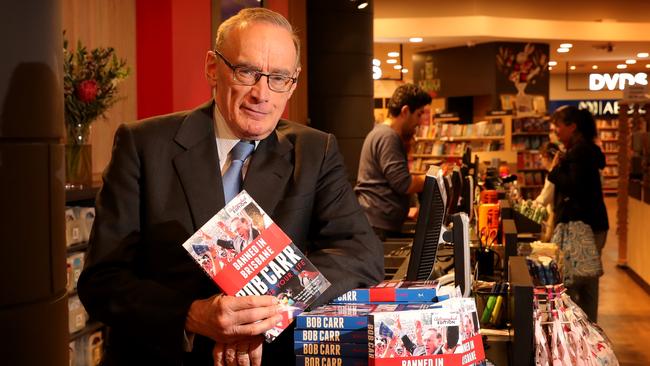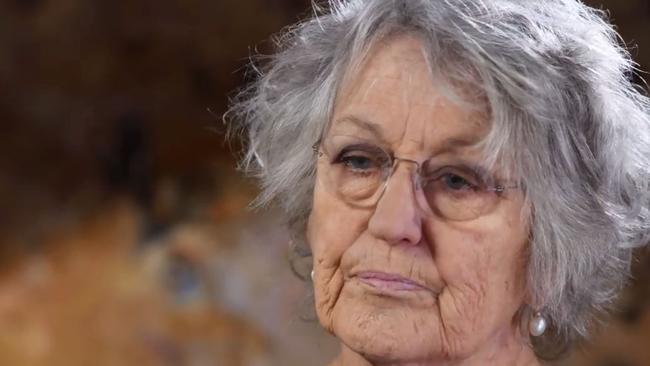How identity politics is shutting people up
OUR obsession with using the “right” language and calling out those with the “wrong” ideas, is shutting down debate, and keeping out of politics the very people we should welcome, writes Simon Copland.
CONTROVERSY has swirled over the last week after the Brisbane Writer’s Festival decided to drop both Bob Carr and Germaine Greer from their upcoming event.
Reacting to the story, the author Richard Flanagan wrote a scathing review of the nature of debate in Australia in The Guardian, arguing that with its decision the Brisbane Writer’s Festival “appears to be a cryogenic chamber where the sea can stay perennially frozen, prejudices perfectly preserved forever, unchallenged, unquestioned, uninformed and unformed.”
It would be easy to say that Flanagan is just out to protect the position of elite writers. However, I think we must take his criticism seriously. Over the past years there has been growing trend within identity politics in particular, and progressive politics in general, to shut down debate and ideas that do not fit the mantra of the day. What happened in Brisbane was a symptom of this.
Identity politics has become a practice of purity. You have to know the “right” terminology, and be on top of the “right” ideas, or otherwise there is a pile on and you are “cancelled”. I’ve noticed this across a range of platforms, but here are a couple of examples to highlight the point.
A couple of years ago I went to a queer conference in Sydney. A trans woman gave an incredible talk about the interaction between capitalism trans politics. Her analysis was smart and insightful. However, her whole session was dragged down after one attendee complained that she had critiqued a black woman in her talk. Suddenly the room was now debating whether the presenter was a racist, and if it was acceptable to critique people of colour in this forum.

In another example I was once a member of a Facebook group centred around activism to defend the Safe Schools program. At one point a new, energetic member, came into the group, and in a comment was told, politely, that they had used an “incorrect” term in regards to trans people. In response this person announced that they would leave the group because they “didn’t know enough” and were concerned that they would harm people by accidentally saying the wrong thing. This was celebrated by the rest, seen as a model of how people should behave in these spaces.
These are just two examples, but I could go on and on, as could almost everyone I know who has ever engaged in this politics. Watching this unfold I ask myself, how is this a space, or a politics, that fosters learning, development, new ideas, or even solidarity?
Even some of the core ideas of identity politics highlight a tendency to shut things down.
Safe spaces, once designed to literally keep people safe from violence, are now really more a place to hide from ideas that make people uncomfortable. Concerns over racist language are seeing classic novels removed from school syllabuses in the United States, while there has been discussion about removing texts from courses in universities in order to protect students.
Then there’s the term “self crit”. Self crit is what people are often told to do online when they breach the rules of identity politics — they have to do some self-criticism. What does this say? It says that there is somehow some “right” and a “wrong” way of doing politics, automatically shutting out anything that is different with a refusal to even talk about it.
Even the idea, prominent within identity spaces, that people should only speak within their experience, or should “stay in their lane”, shuts down our capacity to engage in broader structural critiques that connect issues together. It removes any potential for us to build bonds of solidarity, empathy and community.
Within identity politics issues are frequently seen as being very black and white. You are either a bigot or not, and if you are you need to be kicked out. Concurrently, as discourse about the nature of oppression of minority groups has become broader, so have the definitions of what it is to be a racist, homophobe, sexist etc. To engage in this politics one is expected to keep up — to be continuously “educating ourselves”.

Those who can’t, frequently the working class or just those who don’t have the time to be on Tumblr and Twitter all day every day, will soon enough trip up and be labelled a bigot who doesn’t deserve to stay.
Identity politics also shuts out any critique of it as a form of political action. This is what happened to Lionel Shriver at the Brisbane Writer’s Festival in 2016. Her speech was not filled with outlandish racist comments. Instead she critiqued the impact that discourse around cultural appropriation has on fiction as an art form. Critiques of cultural appropriation politics are common within progressive circles, ones that we must engage in. Yet for doing so Shriver was described as laying the foundation “for prejudice, for hate, for genocide”, and abandoned by the festival that was hosting her.
What happened last week to Greer and Carr are likely to be examples of this very trend once again (although it’s also likely Carr was dropped due to concerns from the event sponsors). These cases highlight a growing unwillingness, particularly within progressive circles, to engage with different ideas, to debate, and to learn and grow from them.
While they get the majority of the publicity however it is not Greer, Carr or Shriver who are the main victims of this politics. They still have a voice, whether hosted at a writer’s festival or not.
It is the many others — the everyday person who is trying to engage on these issues — who are getting shut out of the discussion, and of any movement to create change. It is people of all classes, races and genders. It is frequently people who are trying to learn and engage, but are being lost by a discourse they cannot keep up with. For a movement wanting to highlight the realities of minority oppression, that is the real shame.
Simon Copland is a PhD student in Sociology at the ANU and a freelance writer.
Originally published as How identity politics is shutting people up
